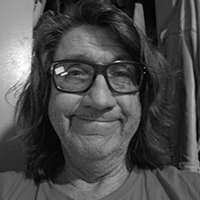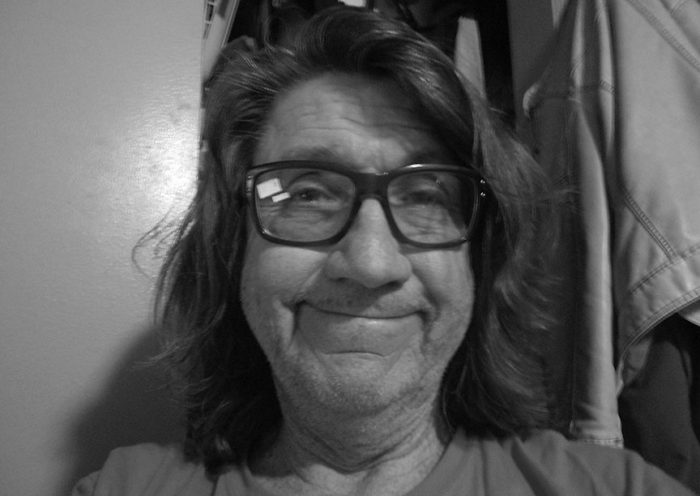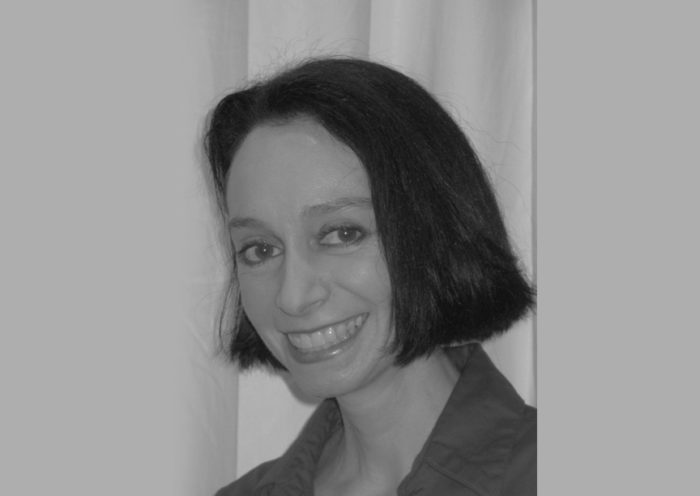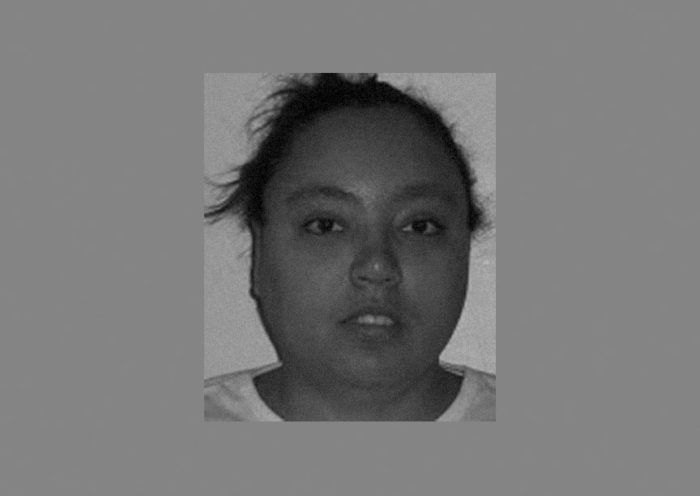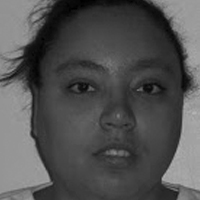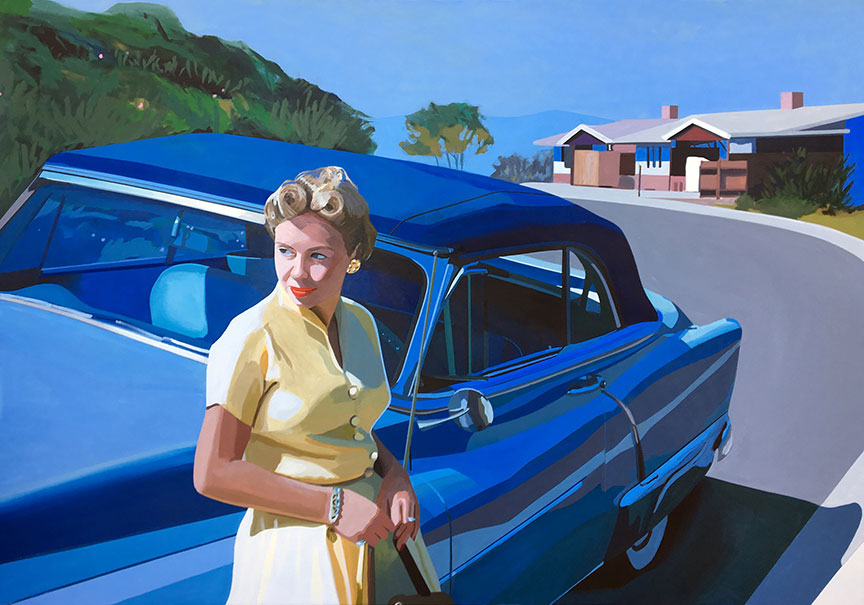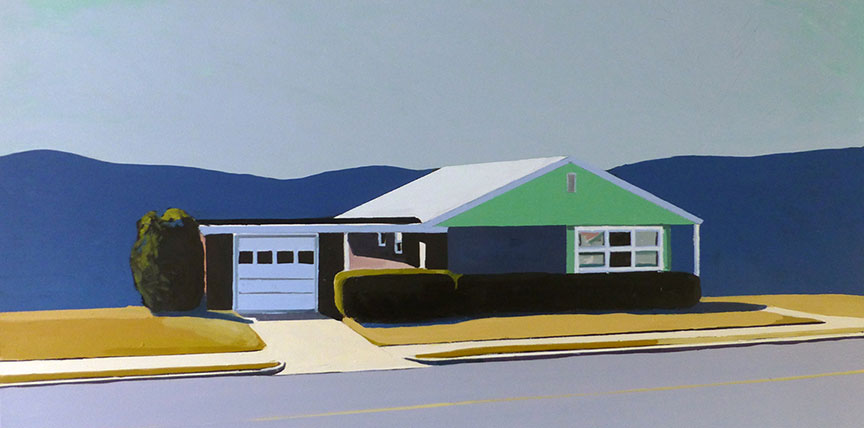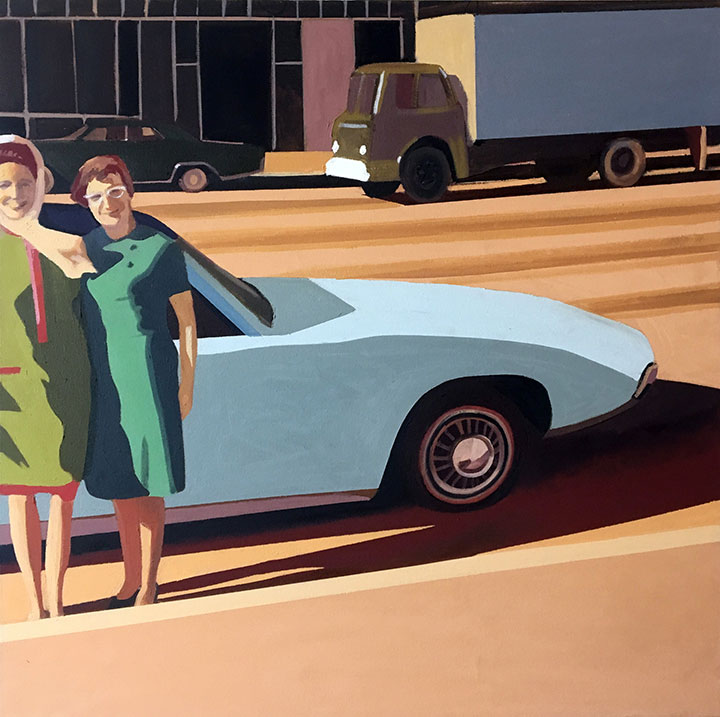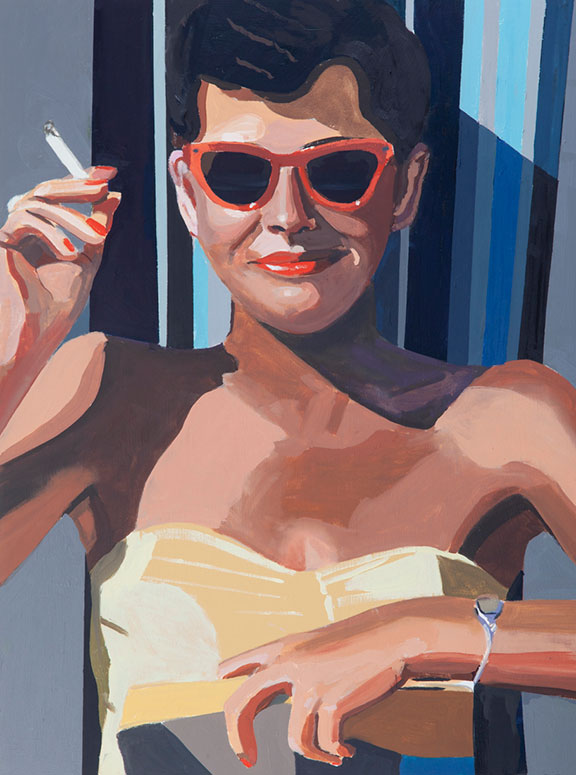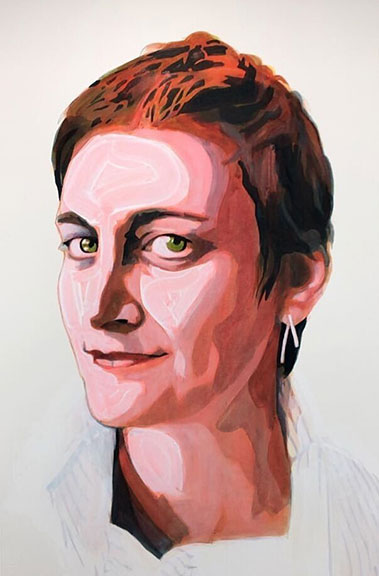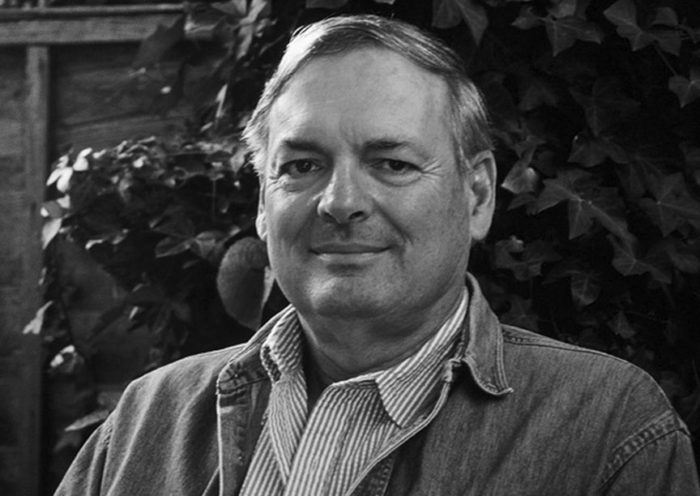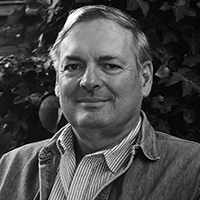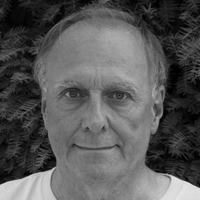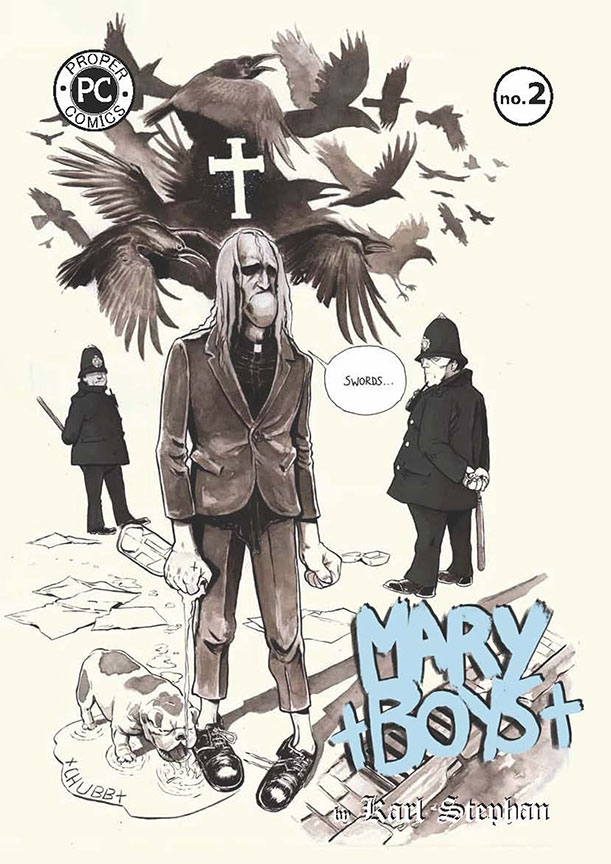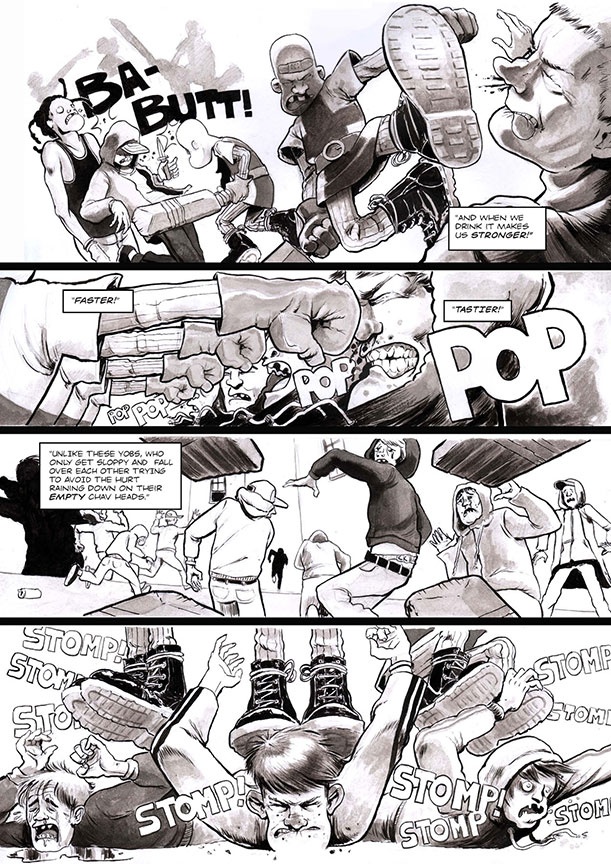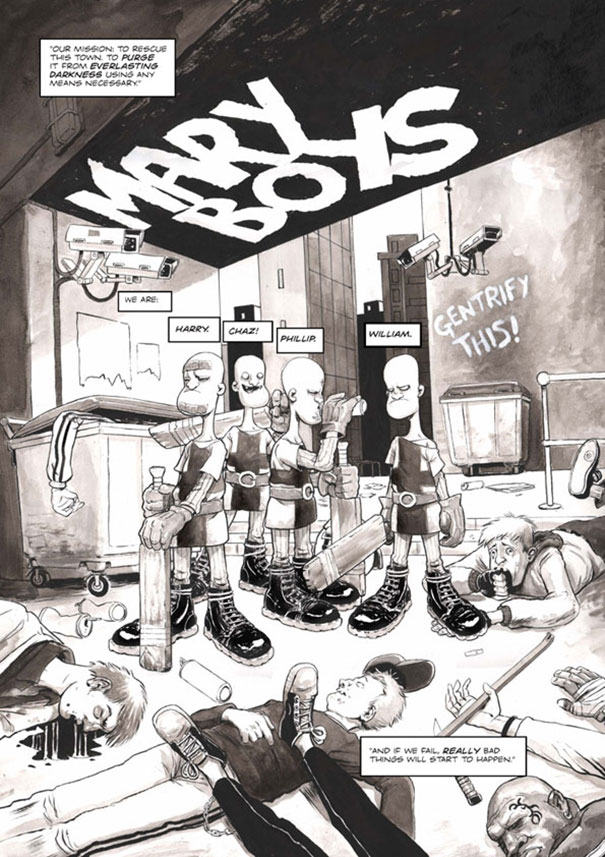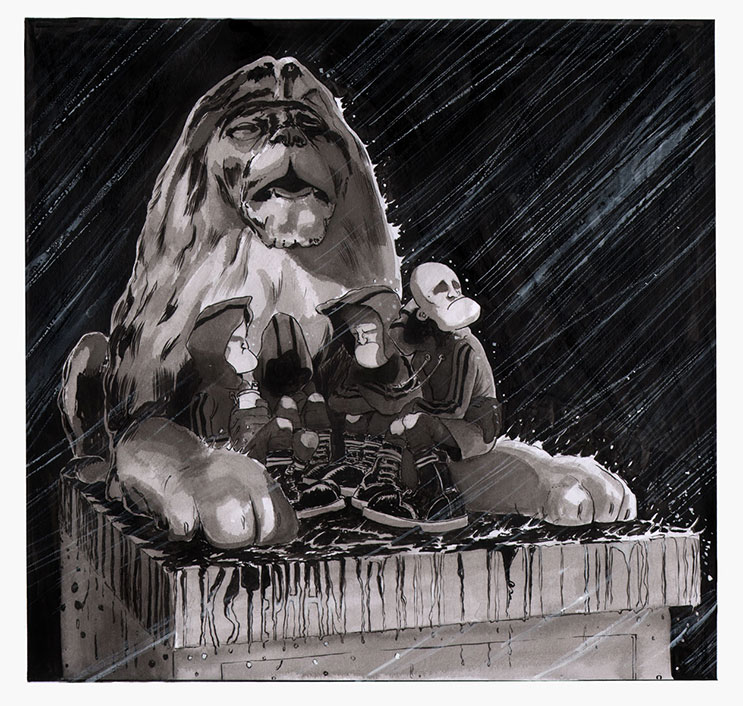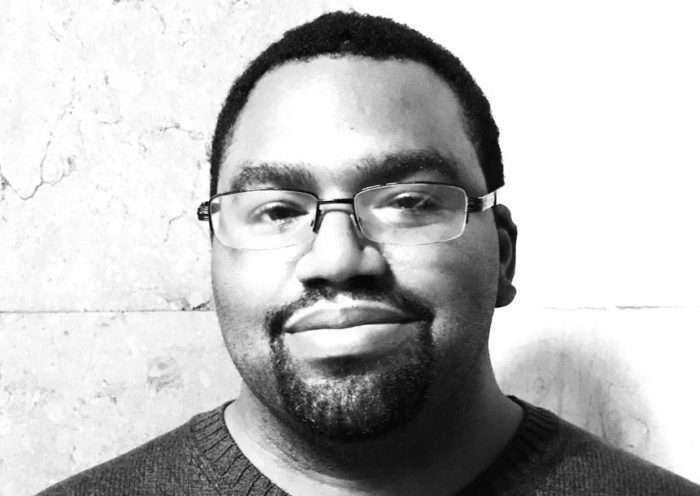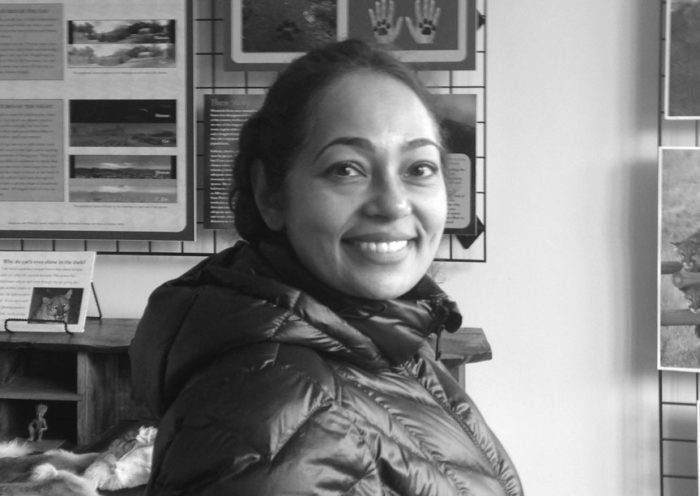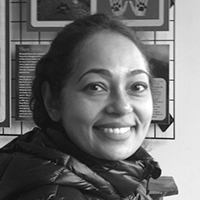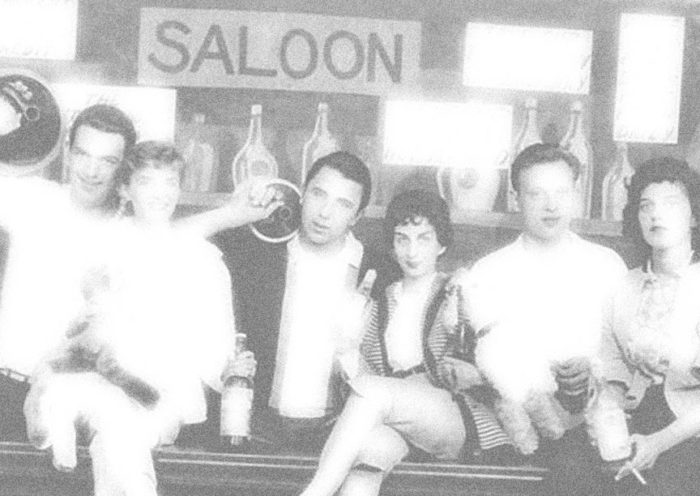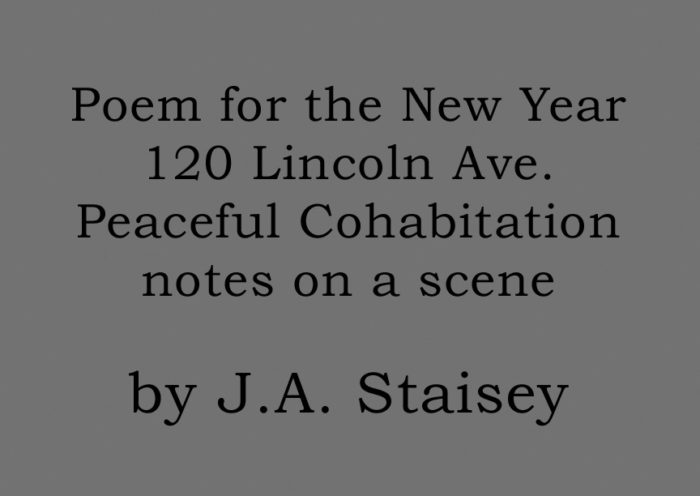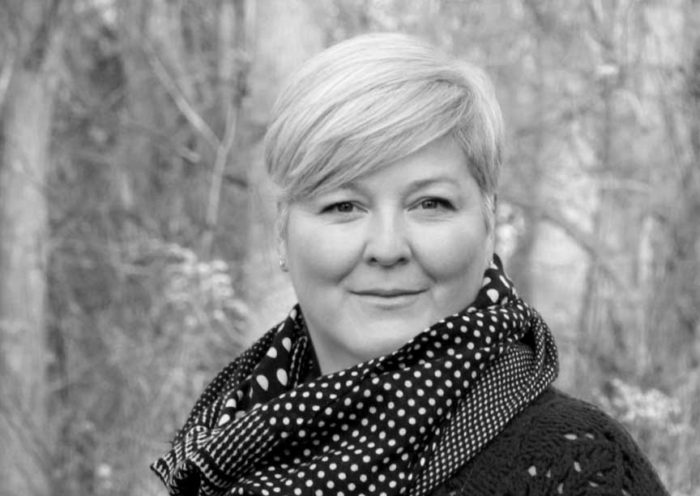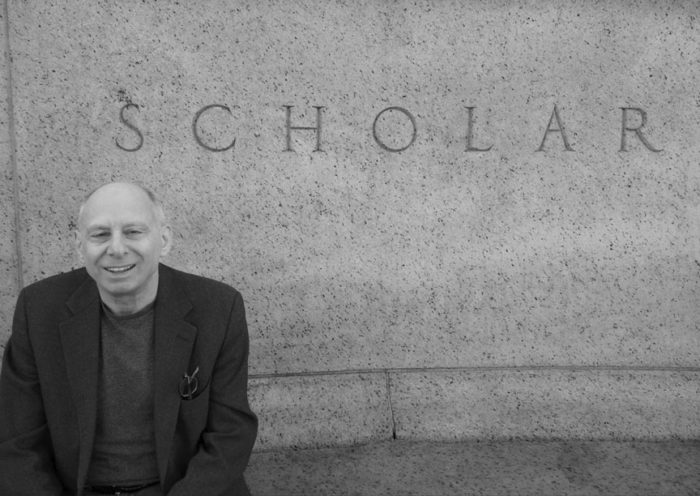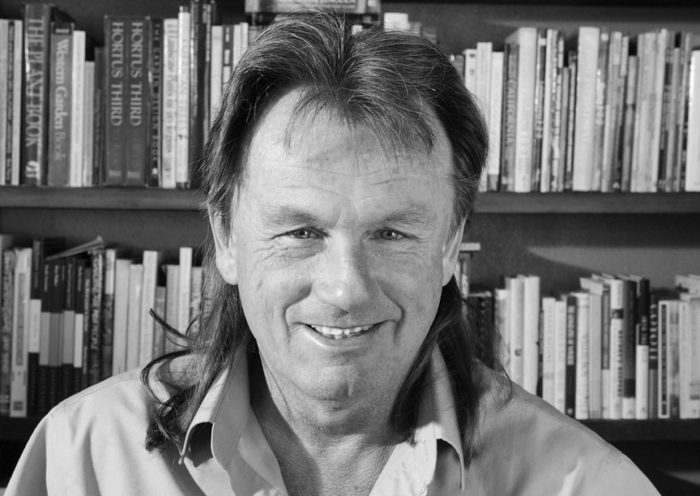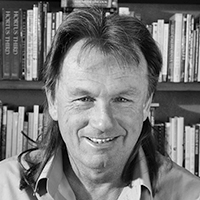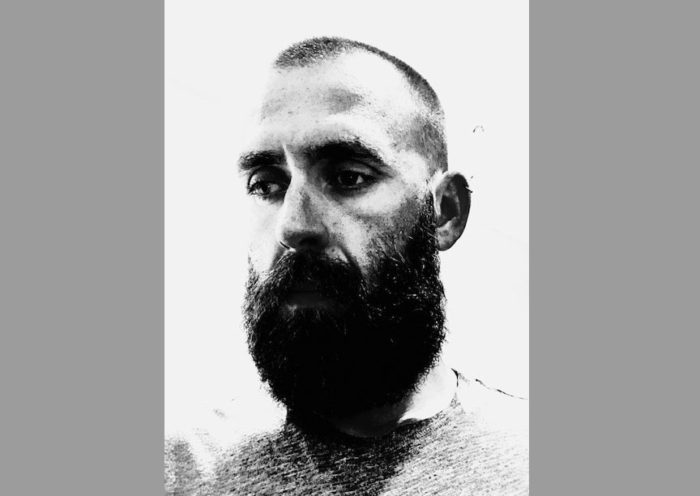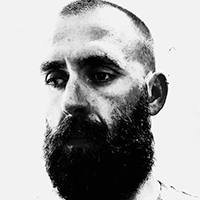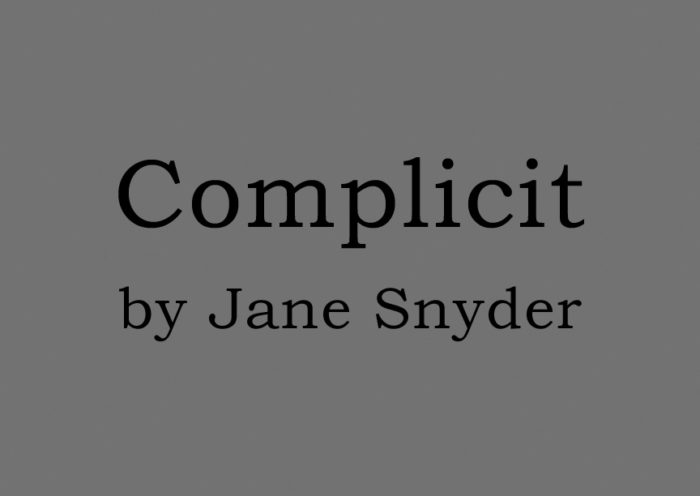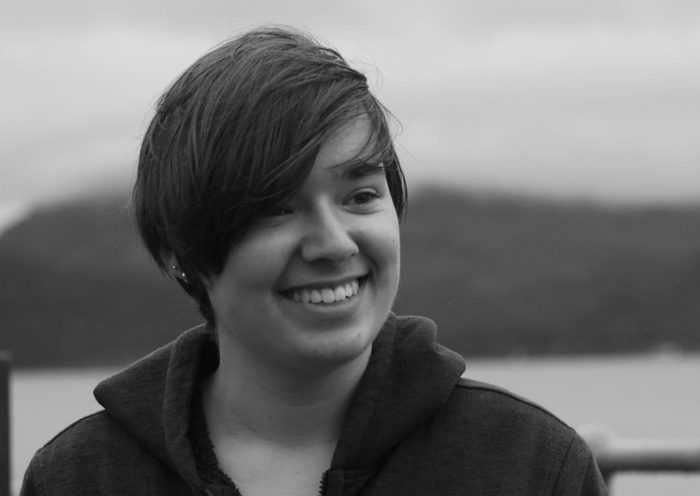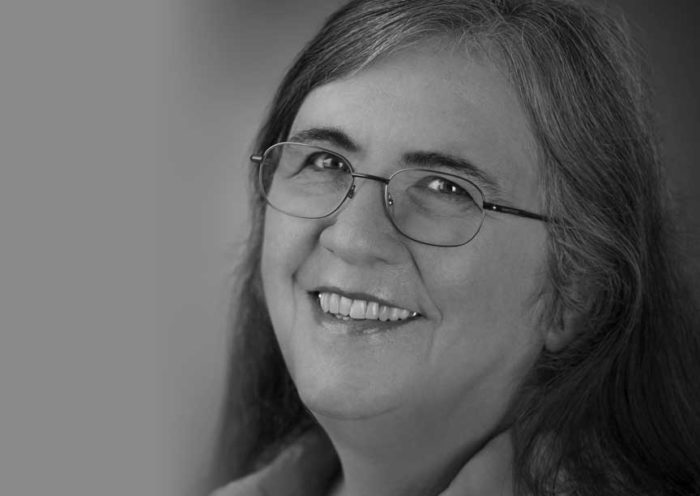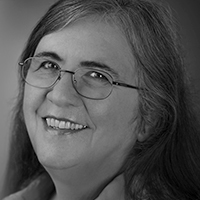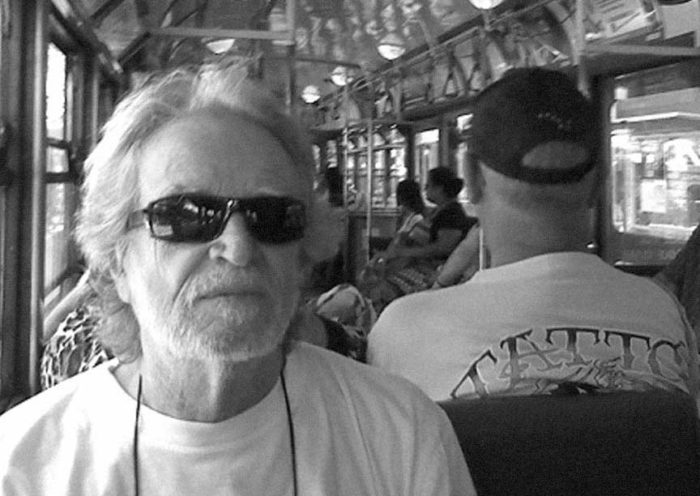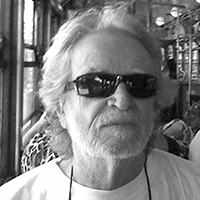20/20
by A.L. Bishop
I woke with limbs full of wet cement, head woolly and hot, wanting only to go outside and lie down in what was left of the snow along the fence. Instead, I went to see the police, as I had promised to do.
“So, you were driving southbound to Fort Erie on the QEW?”
“I was going to the Falls.”
“Why?” He leapt on it. This was one hungry traffic cop.
“That’s where I live.”
“And there was a back-up on the Garden City Skyway? All
three lanes?”
“Yes. The Friday of March Break—the exit to the outlet
mall—”
“And you knew the young woman?”
What? “No. I didn’t know her.”
The officer watched me closely, a canary feather dangling
from his mouth. “You weren’t acquainted in any way?”
“No. She just rear-ended me.” A crunch, bewildered squeaking
as my car rocked back and forth, and when I got out—which took forever, because
I would have done anything to just sit there and pretend that nothing had
happened—when I got out, I saw her behind the wheel, eyes wide as tulips about
to drop their petals. I’d never seen someone so young driving a Caprice
Classic.
“She ‘just rear-ended’ you.”
“Yes.”
He leaned forward in his chair. “She ‘just rear-ended’ you
and then jumped off the Skyway. Just like that.”
Not just like that. First she had crawled over to go out the
passenger side door, but then she was up and gone, scrambling over the
guardrail like a centipede, translucent, indifferent, disappearing into nothing
until, after about half a kilometre, she hit the surface of the canal, though I
didn’t know that at the time. I looked into the empty air where her head had
just been, catastrophe streaking out into the sunny sky and through every nerve
path in my body. I ran to the spot but couldn’t bring myself to lean forward against
the wind and the horror and look. So whether we were over water or roads or
trees or industrial wasteland at that particular point on the elevated highway
was a mystery, but not the most pressing one, in that moment, which was also
occupied by intense salivation at the roots of my tongue and puking onto the
grit left behind by a winter’s worth of salt and ploughing, near the faint
scuffs where she’d gotten out of the car. How small she must have been, to turn
in that tiny space. “Pretty much.”
Traffic Columbo decided to change tack. “And you hit the car
in front of you?”
“Yes. Tapped it.”
He lunged once more. “Did you exchange words with the young
lady?”
“No.”
“Were you carrying a weapon of any kind?”
“What?”
“Did you lose your temper? Was she trying to escape? There
will be footage,” he warned. “Traffic cameras.”
In the preceding sixteen hours, I’d replayed what had
happened in my head hundreds of times, often with tiny tweaks, trying to conjure
up a different outcome. In all those versions, never once had I imagined what
would have happened if I had stayed in my car like I wanted to. “Wait. You
think she jumped to get away from me?”
“Is that what the witness statements are going to tell me?”
My impression from the cops at the scene had been that it
was just a routine public suicide, insofar as suicides in Niagara, a land of waterways
and bridges, are more often routinely public. The scene cops were the ones who
told me that she’d landed in the canal. I looked it up in the middle of the
night—the Skyway is 130 feet at its highest point, and the Welland Canal is
about 25 feet deep. I don’t know anything about physics, but I saw a Canada
goose get hit by a sports car once on the 401 and just explode. If the girl
hadn’t burst when she hit the surface, she might have hit the bottom, like
landing on concrete twice, breaking, then breaking again. Could the skin be
expected to hold together? She was so small. “I didn’t say anything to her.
There wasn’t time to—”
I don’t remember much else that he said after that. He wound
up by noting he might need me to come back for further questioning, that I shouldn’t
go very far—a moot point, since they still had my car, were keeping it as part
of the investigation—but he’d already lost me deep in the notion that the girl
might have been frightened. Of me. Most people barely register me, and I’ve certainly
never scared anyone, certainly not to death.
If anything, I was on her team. Who hasn’t thought about it, a final exit, on your own terms? Living in a tourist town can do that to you, knowing that everyone else gets to leave and you have to stay right where you are. But I think I would have paused for a look around, sat on the edge for a bit, surveying the sky and then maybe just leaning back, a scuba diver. Not straight up and over, like her, a GIF on autoplay—up and over, up and over.
What if it wasn’t up
and over, but simply away, and not simply away, but away from me?
+ + +
At work, I drank the stale water from the steel bottle in my
locker left behind after my last shift. As always happens at this time of year,
I could taste fish. Today I wondered how much of the taste was actually fish—scales
and waste—and how much was from other animals—the great blue herons in the
gorge, the twenty or so gull species that pass through—and how much was from people—spilled
food and drink, dissolved sunscreen, flaky skin, sewage, the rot of the
unembalmed. I stared at the screen, tried to make sense of the delivery
schedule, chatted with the FedEx guy like any other day. But it was like a
smudge on my glasses, the image of her face behind the windshield, impeding my
view whether my eyes were open or closed. Only now, I couldn’t remember where
she was looking. We hadn’t made eye contact, but had she seen me at all? Or was
it always that vacant stare?
Instead of fading out or lumping together, the questions in
my mind got sharper and multiplied and developed taunting laughs, so that when
I overheard one of the women on the morgue staff chatting with a mortician
outside the dock—for in hospitals, you’ll almost always find shipping and
receiving next to the morgue—I locked on like a lamprey.
“Can you imagine? I mean, traffic gets under my skin, too,
but…” Ha, ha.
“Well, let’s make it official, shall we? Williamson, Agnes,
female, 24…”
“No, never anything quite like this…”
“And they’d only just opened the canal for the season…”
“Interment, yes, small service. Eleven o’clock Tuesday at Fairview.
Will that be a problem?”
“Amazing that they recovered enough to inter…”
“I hate talking to my insurance broker, too, but…” Ha, ha,
ha.
I stepped into the hallway. “Did she leave a note?”
Elaine—who would have needed a more self-contained
temperament in her line of work, I’d have thought—jumped.
“Are you speaking to me?” said the mortician, mortified.
“Ms. Williamson.” Saying her name felt like a betrayal and a
consummation at the same time. “Did she leave any indication of why she—?”
“I’d best be on my way,” the mortician told Elaine.
Elaine, now recovered, forced a smile at me.
I wandered back to the computer terminal, thinking about
remains. Through the dullness of lingering shock and the faint and constant diesel
fumes of the dock, an idea sprang into my head, a motion-sensor light triggered
by scurrying rats. If I were to go—pay my respects—what could her people tell
me? Or, perhaps, not tell me, overcome with grief and not paying any attention
to the nondescript stranger who seemed so broken up about things, but let me hear
and see and learn—what clues, what skeleton key?
So, I would go to the burial. That’s what I decided. After work,
I got all the way out to the employee parking lot before remembering where my
car was, that I had to walk home.
+ + +
My attic apartment is in an old neighbourhood close to the Niagara River, one that used to be something before the bottom fell out of downtown. The street’s leafy quiet butts up against a garish wall of tourism, so that you step out of this creaky old enclave straight into the plastic fantastic if you’re going anywhere on foot, which I was now, heading to the graveyard. It was a bit like having to pass through Disney World to get anywhere, but with more smut and fewer people tasked with cleaning up urine.
Dirty snow clung to the ground, defiant of the brightening
sun, and my face felt hot from the
cold by the time I arrived at the cemetery. I surveyed the scene as I
approached along the walking path. People weren’t thick on the ground—a minister, attendants from the funeral home, though not the
giddy mortician, and a few middle-aged women in parkas and matching black
pants. Those matching black pants, a uniform, gave me pause. If Agnes Williamson had no one to bid her farewell apart
from a few work friends, my already-uncomfortable status as an intruder on a
fact-finding mission felt shameful, obvious, and futile, worst of all.
I stopped and someone ran into me from behind.
The woman had a face dried out from too much nicotine and eyes like amber, glistening through as much mascara as I
had seen one person wear at one time. Her red scarf had catches in it. She
looked at me, put out and expectant.
Under her gaze, I felt unable to go anywhere except forward,
toward the gravesite. Panicking but anxious to blend in and escape her, I left
the path, stepping onto the colourless, snow-flattened grass. She fell in
beside me. She stood where I stood, not far from the minister, who appeared to
take our arrival as a signal that he could begin. The wind moved his greying
hair off his head. He patted it down.
The woman sniffled quietly at first, but soon began to sob. Christ,
was this Agnes’s mother?
The service, which couldn’t have lasted for more than a
quarter of an hour, took a thousand years standing next to the weeping woman. As
soon as the minister wrapped up, all of the black-slacked ladies on the other
side of the grave hastened over en masse to huddle around her and, beside her,
me.
The heaviest one grasped both her hands. “You must be
Agnes’s mom. My name is Maria. I was her supervisor at the restaurant.”
Agnes’s mother nodded but didn’t speak.
“We’re all going to miss her. She always helped out if one
of us needed a break. Never complained. Good worker.”
Multiple sympathetic gazes landed on me.
Overwhelmed with guilt, I dropped my head, but this somehow implied confirmation of a relationship, elevating me from rubbernecked gawker to full-on imposter.
“Ah, Agnes never said much,” said Maria, patting my
shoulder. “Agnes was not a big talker, either, was she? But she did good work.
We’re all going to miss her.” Then she said to me in a low voice, “Can you come
by the restaurant? Agnes left a few things in her locker. We wasn’t sure who to
give them to.”
Agnes’s mother looked up at me with blackened eyes.
“You should have that,” I said to her. She burst into fresh
tears.
“It’s Sunny Side Up, on the Lane,” Maria said, trying to
keep her voice down and be heard over Agnes’s mother’s wailing at the same
time. “I’m on morning shift, next four days.”
Maria stepped away and I seized the chance to peel off with
the work friends, but Agnes’s mother put her hand on my wrist, a burr.
“Won’t you help me?” Her voice held me, though I wanted only
to be away from her.
Everyone else, even the minister, had hoofed it. “What can I
do?”
“A drink, to start.” Didn’t she care that I was a complete
stranger? “I’m staying downtown. So, close to that.”
“I don’t have my car.” I felt lucky that my knees didn’t
give out as I spoke.
She hadn’t let go of my arm. “You have a couple of casinos in
this town, don’t you?”
I held out a slight hope that if I started moving, she might
let me go. Instead, she clasped my elbow and walked with me out of the
cemetery.
“I’m due in for my shift at the hospital,” I said, which wasn’t true.
She ignored me. “You knew my daughter?” The word “daughter” stuck
in her throat.
“Not really.” Her sharp glance drove another lie from my lips. “Not—well.” It took my breath away.
“You’re here, aren’t you? You wouldn’t be here if she didn’t mean something to you.”
As we got closer to Bridge Street, a man who should have
been wearing a coat passed us on the sidewalk, too close.
“I need to understand what happened to her,” she said.
So did I. Ever so much. “I’m sorry, but I can’t help you.” I took my arm away from her, anxious to commence the likely interminable process of forgetting that I had ever crossed this line. I put my hands in my pockets, keeping an eye on the coatless man.
“What’s your name?”
I met her eyes as briefly as I could, dropped them to the lipstick bleeding up into the skin around her mouth. “Alex.”
Her face lit up. “She talked about you!”
I can’t imagine what I looked like when she said that.
“She did! All the time, she did.”
“It must have been another—”
She grabbed my wrist again. Flecks of mascara floated in the
tears collecting over her heavy lower lids. “I know you were good to her. I
know she would want you to be good to me. We’re both hurting, here. I think we
can help each other.”
“I’m sorry. I have to get to work.”
She made a sort of huffing noise, and then fumbled around in her purse and came up with a pen. She scribbled down a number on a business card and handed it to me. It was for Leopold Drewe of Drewe Financial in Halifax. On the back, she’d written “Vi” and a telephone number. “I’m here for a few days.”
The man with no coat lurked a few feet away. The thought of learning
more about Agnes, maybe finding answers—not just for me, but for Vi, too, for
both of us—wrapped itself around me in slow, sticky loops, like the pulled
candy they used to make behind a window on Queen Street when I was a kid. I
held the card for a few seconds, scraping its edge against the winter-dry skin
on the inside of my thumb, staring at the man.
“I can come with you for a bit.”
She smiled, then wilted, out of relief, I guess.
+ + +
We went to the old casino, what was once Maple Leaf Village,
and ordered drinks in the restaurant, scotch and soda for her, tea for me.
“You
came from Halifax?”
Vi frowned. “Who told you that?”
“Oh.” I pulled the card out of my pocket. “It says—”
She took it and peered at it, then tossed it on the floor. “Some man in a bar gave me that.”
“Oh. So did you have to travel far to—?”
Vi cleared her throat. “I was already on my way here when I
got word. I wanted to see her—Agnes—about something.” Her shoulders crumpled in
an exhausted, hollowed-out way. “Well, I’m sure she told you all about it. You
know the bind I’m in.”
I didn’t know what to say.
“If I don’t get to Andrew, I don’t know what I’ll do.”
“Andrew?”
Vi drained her glass. “My son.”
“I didn’t know she had a brother. She—never mentioned him.”
And there I was, manufacturing Agnes, my mouth so sour from it I thought my
gums might start to bleed.
Vi held up her empty glass as a signal to our server.
“Half-brother.”
“Older or younger?”
She paused. “He’s 24. They weren’t close.” She looked at me
through bitumen-encrusted lashes. “How long have you and Agnes been friends?”
I took a big sip of the mug of tea the waiter
had brought me and felt the fingers of hell on the insides of my cheeks, my
tongue, my throat, the boiling water claiming what felt like many layers of
tissue. Trying to recover, I took off my glasses and cleaned them on my shirt,
then resettled them on my face. When I blew on the tea, they fogged up.
Vi smoothed back her thin brown hair, pressing the skin at
her temples. “Are you all right?” She let it
hang, my mounting discomfort.
“Yes. Sorry. You were saying, about going to see Andrew?” The
inside of my mouth was still on fire. “Where is he?”
“Switzerland.”
“That’s why he’s not here today.” Not the right thing to say. “For Agnes. For you. It was too far to come.” Disdain weighed down her heavily plucked brows. “When does he expect you?”
Vi’s face contracted into helplessness. “I can’t afford it
now.”
Sure. Funerals. “That’s terrible.”
“He’s ill. He needs me to take care of him.” Vi touched her
cheekbone with her ring finger, blotting tears I couldn’t see in the patchy
casino lighting. “I just don’t know what I’ll do now. If I don’t get to Andrew,
I don’t know what I’ll do. I can’t lose another—”
“That’s terrible,” I said again.
She trained her golden eyes on me. “I don’t need your pity. I need your help.”
“How can I help you?”
“You said you’re a doctor.”
When had I said that? Is this what people meant when they talked about losing track of your own lies? “No. I’m not. A doctor.”
“You said you had to get to the hospital. For work.”
“Oh—no. I work in shipping.”
I hadn’t seen anyone look so disappointed in me since I’d last seen my parents.
“The mail room?” She let out a little bleat of laughter. Our
server walked by, a young man with broad shoulders and purplish white teeth. She
waved him over. I thought she might be checking on the status of her refill,
but she asked for the cheque. He started to fish through a wad of papers.
I grabbed the bill when he held it out. “Here, I can—”
“You don’t want to help me. I don’t know why you would
pretend.”
The server handed me a portable card reader. Vi rolled her
eyes at him under her laden lashes and he put his hand on the back of her
chair, brushing her shoulder, giving her the smile he almost certainly saved
for women like her. He flirted out of habit, to while away his shifts and maybe
wring a few extra dollars out of the perpetually sad clientele. But Vi had just
buried her daughter. I cancelled the tip I’d been about to confirm on the
device and handed it back to him.
“Do you want to go anywhere else?”
“With you?” Vi pulled on her coat, tied her ratty red scarf. It seemed that the answer was in the question. I followed her out of the restaurant anyway, through the casino, into the parking lot, where a light, icy rain flicked against the awning overhead.
“Was Agnes going to come with you overseas?”
“Are you trying to upset me?” She was small, like Agnes, but
not at all frail.
“Of course not. I’m sorry. I’m just—I just wish I knew why Agnes was so sad.”
She unleashed that bitter laugh again. “You sound like a terrific friend.”
Desperate to hold her there, desperate to atone, I said, “I wasn’t her friend.”
Her face went still.
“I was just there. When she did it. And I wanted to—”
“Did what?”
I dropped my voice. “When she killed herself.”
“Killed herself,” Vi said, almost as though she didn’t believe me. “What does that mean, you were there? You watched your friend die?”
“She wasn’t my friend.” I kept running out of air when I tried to speak. “I’m sorry, but I didn’t know your daughter. I only happened to be there when she—I just need to know why, I need to know what made her do it.”
Vi’s yellow eyes flared, twin matches. “You’ve been lying to me.”
“It’s the worst thing I’ve ever done.”
A taxi pulled up from the nearby taxi stand. She turned away.
“Vi, please—I’ll give you anything. But please, can you just
tell me what was going on with—why she was so—”
Vi stopped, holding the door handle, and said, “I need money.”
Her voice sounded different, so it took me a minute to
process. “To get to Andrew,” I said at last.
She threw her arms around my neck, back to herself again. “I
knew you would understand, honey. Agnes was going to give me the money. She’d
been putting it by to try and help me out. But I can’t get to it. Everything’s
all tied up.”
I tried to catch up. “I’ve heard that sort of thing can take
forever.”
“I can’t wait. I thought that if you knew how much she
wanted to help me, that you might step up.” When I didn’t immediately volunteer,
she hardened. “That was when I thought you two were friends. And here it was
all a filthy lie.”
“You want me to give you money?”
“Lend it to me,” said
Vi, hurt. “Just for a while.”
No one had ever asked me for money before for what, to me,
were obvious reasons—nine hundred of them, the sum total of my personal assets.
I didn’t know the correct reaction, or the protocol for agreeing or refusing.
“How much?”
“Ten grand.”
“I don’t have—”
She cooled off again. “Right. The mail room.”
Agnes wasn’t my friend. Agnes wasn’t my anything. And yet,
if I had only stayed in my car, she might—
Vi made a move for
the taxi.
“I didn’t know that’s what you wanted,” I said, stalling.
“It isn’t what I wanted.” She pouted. “You’re abusing me terribly.
I thought you might like to try to make it up to me. If I could trade it all
and have my daughter back, you know I would.”
She opened the cab door. I spotted a standalone ATM near the
lobby entrance. “Wait.”
I went over and withdrew my daily limit, four hundred
dollars. The taxi was just starting to pull away as I got back but I yanked
open the door and jumped in. I thought she would have the driver throw me out,
but when I handed her the money, she started counting it. I nodded at him to
go.
She rolled her eyes and put the cash in her bag, stonewalling me all the way to a mouldy motor inn downtown, where I got out with her and paid the cabbie, hoping she might relent and ask me in and tell me all about her dead kid.
Fluorescent lights shone over each numbered door. As Vi
stood before her cabin, one lit up her hair from behind, sad and wispy. “You
know, you have my number,” she said. “If you actually want to help.”
She closed the door in my face. Halfway across the parking
lot, I remembered that I didn’t have her number anymore—it was on the floor
under the table at the casino. I went back and knocked, but she didn’t answer.
Maybe she was taking a shower.
I wandered around downtown for a while, through the
underpass where all the stray cats live, imagining Vi’s next few days. There
would be lawyers to deal with, perhaps police procedure, not to mention
scraping together the money to pay for the burial. She would have to go through
Agnes’s home, her things. And all of it would be worse than just the fact of
doing it—it would all be compounded by why she was doing it. And what had I
given her, for all that misery? A pack of lies and a few hundred bucks.
+ + +
Sometime in the night, I remembered Maria and the bag of
Agnes’s belongings waiting for Vi at the restaurant.
I set out first thing. I still hadn’t heard from the police
about my car, so I walked again, the cold, damp air clamouring for the space
between my clothes and my skin.
The restaurant’s ‘please seat yourself’ placard was up.
Everything looked tired—the plastic plants, the stained upholstery. I ordered
toast and then thought of Agnes with her goggle eyes bringing toast to liars in
the early morning and lost my appetite. When Maria came out of the men’s room with
a mop and bucket, I snapped my face toward the window, filled with regret. I
took a sip of water but choked on it when I heard her say, “Is it you?”
I coughed and sputtered. Maria yanked napkins from the plastic dispenser on the table and handed them to me, then wiped down the table. “I’m sorry, I’m so sorry to startle you.” Her mild accent gave her words a plunging rhythm.
My eyes watered, which I’m sure made her think I was crying.
“It’s OK.”
“It is you. I didn’t mean to—of course, you wouldn’t
remember me. We met the other day.”
“I remember. You said you had some stuff that was—”
A small man stalked out of the kitchen, his hair greased
back over the popped collar of his tracksuit jacket.
“Yes, yes, I’m glad you were able to come,” Maria said. “I
wondered how you and your mother are doing. Oh, how we miss your sister.”
Maria couldn’t see the little guy hopping up the aisle
toward us, so when he spoke, she recoiled.
“Maria? What’s the problem here?”
“She’s helping me,” I told him. “I was choking.”
“Tony.” Maria bunched up the soggy paper napkins in one
hand. “This is—you remember poor Agnes—”
“Who?”
Maria, horrified, said, “Agnes!”
“Get this cleaned up.” He returned to the hostess stand.
“I’m so sorry,” she said. “He’s the manager, but I usually
take care of anything to do with the staff.” Her troubled smile fell apart, and
she opted for retreat. “I’ll only be a moment.”
I watched her head toward a back room. Then my eyes settled
again on Tony at the cash register and stayed there until she got back with a
grocery bag. She whispered, “There’s money. I made sure no one touched it.”
The shame at being so unjustly trusted threatened the
integrity of my skull. Still, I couldn’t help myself. “Can you tell me anything
about her? About why she was—like she was?”
Maria shook her head. “It can be hard, families. I know. I
wish I could tell you more. She was so quiet. Worked hard, never complained. I
didn’t know her better than that.”
“Maria!” Tony hit the side of the register with the flat of
his hand.
“I’m sorry, I can’t talk no more,” Maria said. “But I
appreciate you coming in here. Agnes was a good girl. Now, you give our best to
your poor ma.”
Head spinning, I left a ten-dollar tip for the two-dollar
toast that hadn’t arrived and managed not to throw up in the bushes. Maria
thought her dead friend was my sister, and now I had swindled her out of
Agnes’s last worldly possessions.
I took a deep breath. After all, a work locker is hardly the
place for worldly possessions. Mine had cough drops and empty hand sanitizer
bottles. If there was a letter or a will or a manifesto, it wasn’t going to be
in this bag.
Anyway, I hadn’t gotten Agnes’s things for me. I’d gotten
them for Vi.
+ + +
Downtown, a heavy, damp chill trapped foul smells in the
road.
I walked to Vi’s motel, stopping only at an ATM to get out
another $400. It was still early, but I knocked on her door. She didn’t answer.
I waited next to the overgrown and yet mostly dead cedar shrubs lining the
parking lot, holding the bag of Agnes’s things, switching it back and forth
between my hands as they got sweaty in spite of the cold. Apart from a few meandering
derelicts, there wasn’t much foot traffic. A patrol car passed without slowing
down. Cracked, faded plastic bowl chairs, stacked up at one side of the motel waiting
to be set out for the summer, or maybe for garbage collection, were my only
companions, apart from a parked silver Mercedes and Agnes’s legacy.
My phone rang.
“Alex Larson?”
The lead investigating officer, not the keener who had taken my statement, wanted to inform me that I had been cleared of all wrong-doing, and that no charges would be filed by the driver of the car I’d hit, either. I could collect my vehicle later in the day.
He was starting to say something about insurance and estates when the door to cabin five opened.
“Great, thanks.” I hung up.
Vi’s dusky head appeared in the weak sunlight. She had on
her dressy coat, the red scarf with catches in it. Behind her, a bald man in a
suit followed her out. The Mercedes chirped.
Her coal-rimmed eyes went stony when she saw me approaching.
“What do you want?”
I held out the bag. “I went to the restaurant where Agnes—you remember, her coworkers said we should—these things belonged to her.”
Vi moved toward the passenger door.
“Agnes’s things,” I said. “From her work.”
“Friend of yours?” The man looked me up and down, grinning.
“No.”
“You can join us, if you like,” he said.
“I’ll just be a second,” said Vi.
He shrugged and got behind the wheel. She grabbed the bag
and dug around, pulling out an envelope and emptying it of the money Maria had
safeguarded. The car started. Vi tossed everything else onto the pavement.
Grief makes people do strange things. I bent over to rescue
the bag and the discarded envelope. “I’m sure it must be so hard, going through
all of her stuff and every—”
She got into the car, which pulled out and away.
I don’t know how long I stood there, but the motel owner
came out of the office and hollered at me. “Hey! You can’t work here!”
With no idea where to go, I started to walk, the bag bouncing
against my leg.
+ + +
At the cemetery, the grass was crunchy with frost, the
ground cold and hard as I sat across from the temporary marker that read “A.
Williamson.”
People who die in freak accidents have all kinds of
half-finished detritus kicking around afterward. Their loved ones have to decide
about every single piece, whether or not to donate the
teach-yourself-to-play-harmonica book to charity or to teach themselves to
play, in honour of the dead person, who may have gotten the book as a gift and
never had any intention of learning. If, on the other hand, you’re making an
exit, you make sure things are sorted—you don’t want people stumbling across something
you’d prefer left unseen, or swooping in and claiming a memory or memento that
shouldn’t be theirs. If you’re on your way out, you get your house in order.
Unless, of course, you’re on the fence about leaving when out of nowhere, you
find yourself faced with an opportune moment. Or scared out of your wits by
some stranger you’ve just hit with your—
I wrapped my arms around my knees and pressed my forehead
against them, shivering at all of the horrors I’d come to see in the last few
days, most of them perpetrated by me.
Then I sat up again and opened the bag.
Inside, there was a black cardigan that smelled of kitchen
grease. I didn’t pull it all the way out. A few coloured elastics and bobby
pins fell off of a sleeve, with one or two long brown hairs still in them. What
would Vi have done with the hairs? Take them out of the elastics? Drop them
onto the ground or release them to the wind—when these were the last, the very
last ones?
Under the sweater was a coupon for a local uniform
manufacturing store, and the envelope, which had a word that might have been “index”
scribbled in pencil. At the very bottom was a folded piece of paper, a printout
of Agnes’s obituary. Had Maria printed it? Unauthorized use of the office
printer hardly seemed characteristic, from what I knew. I hadn’t ever seen the
obituary, was surprised there was one. I couldn’t imagine Vi at a keyboard,
hunting and pecking out a death announcement for publication.
A sharp breeze caught the paper. I thought about letting go.
Instead, I read it—several times, without making sense of
it—loving parents, both deceased. Edgar and Carolina. No siblings. Not survived
by anyone. Loving parents, both deceased.
I knew those names. They were on the stone next to Agnes’s marker.
I squinted in the sunlight to read the stones again. Edgar
and Carolina Williamson, different birth days, same death day, three years ago.
They died on the same day? How? A fire? Car accident? Atrociously bad luck?
I forced myself up into a crouch, then willed my knees to straighten as I stood. My numbing fingers lost their grip on the obituary, which almost refolded itself as it skittered away. I rolled up the bag and tucked it between a small shrub and the headstone for Edgar and Carolina. Then I drove my fists deep into my pockets, punching something. My right hand opened and closed again around cold polymer, heedless and aloof, a wad of ATM twenties.
BIO
A.L. Bishop is a writer in Niagara Falls, Canada whose stories have previously appeared in Book Six of the Carter V. Cooper Short Fiction Anthology Series, Exile: The Literary Quarterly, and The Forge. Learn more at www.albishopiswriting.com.
